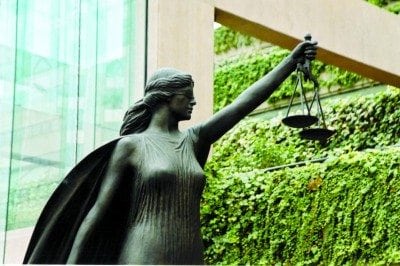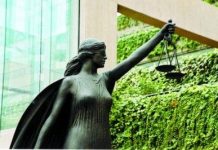THE Supreme Court of Canada dismissed an appeal concerning police entrapment in an oral ruling from the bench on April 13, and the BC Civil Liberties Association (BCCLA) is disappointed that the Court did not take the opportunity to provide guidance on the application of entrapment law in the virtual world.
The BCCLA intervened in the case to argue that the court should place important limits on the power of police to provide opportunities to people to commit crimes in virtual spaces such as internet chatrooms. Undercover police conduct in forums such as chatrooms (as well as message boards and social media platforms) has profound consequences for privacy and expressive freedom. Canadians increasingly go online to find a sense of community — to find and confide in others with similar worldviews, religious beliefs, cultural practices, or life experiences.
If Canadians have to worry that a police officer could be sitting behind every username on their screen, they will inevitably self-censor. This is not the society that we want to live in. And so the BCCLA argued that the Supreme Court should require the police to have detailed, recent, and cogent evidence that a narrowly defined virtual space is being used for criminal activity before engaging in such operations.
The risks are at their highest when the police target spaces frequented by vulnerable or otherwise marginalized communities. The BCCLA argued that the courts should be especially vigilant in these cases.
The BCCLA’s intervention in this appeal did not relate to the immediate outcome of the appellant and instead concerned the development of the law of entrapment in a manner consistent with the Charter of Rights and Freedoms.
Gerald Chan, Counsel for the BCCLA, said on Thursday: “This appeal was an opportunity for the Supreme Court of Canada to clarify the boundaries of what is acceptable police conduct online. Without meaningful constraints on undercover police operations on the internet, there could be severe implications for privacy and an enormous chilling effect on freedom of expression. While we are disappointed that the Court did not provide guidance on this issue, we hope that in future cases the Court will place important limits on police conduct in the virtual world. When the police go online, the scale of their operations may be drastically expanded and the impacts on privacy and expressive freedom are felt on a much broader scale.”
The BCCLA was represented in this case by Gerald Chan and Spencer Bass of Stockwoods LLP.
The BCCLA’s factum is available here.












